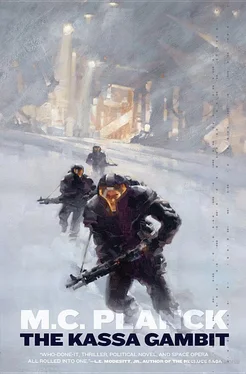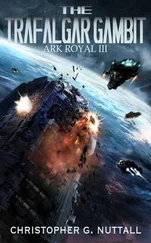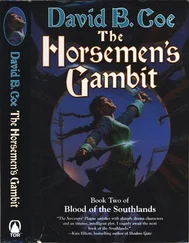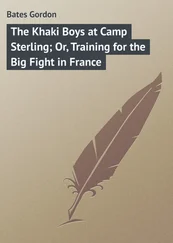Or possibly a lead. After checking his console for taps, snitches, and worms, he put out a few discreet inquiries. Starship travel schedules, sandwiched in between commodity prices. If anybody was watching, they’d think he was merely trying to profit off of his insider knowledge of the situation on Kassa.
Prudence’s ship had left only a few hours before the Phoenix had dropped in-system. A wise move for her, and what he had expected, but he still felt the pang of disappointment.
She hadn’t gone back to Kassa. The log showed her heading out another one of the twelve nodes that fed Altair. That wealth of connections combined with an innocuous ecosphere had quickly marked Altair out for local supremacy in this sector of nodes. Life had been easy and good for a hundred years.
Maybe too easy. Altair had stopped making hard choices a long time ago. The future looked like it was going to require some.
He corrected himself; she hadn’t gone directly to Kassa. There were ways to get there other than the shortest route. Unwilling to trust the computer with such a sensitive inquiry, he printed out a node-chart and checked the routes by hand. She could still reach Kassa with seven extra hops.
So now he knew no more than when he had walked in the door.
The cupboard still had a few beers in it. Beer was old, old as Earth. Even on Earth it had been old. People liked that about it. They liked those little things that tied them to the past. People who couldn’t spell “Earth” without blushing, people whose sense of history extended no deeper than last season’s ball-game playoffs, would wax eloquent about the virtues of their favorite brand of beer, about how true its recipe was to the original, brewed by blind Tibetan monks in a stone castle a thousand years before electricity was invented.
Not that anybody even knew what a Tibetan monk was, really. Half the sources said they were religious zealots, and the other half said they were super-soldiers with magic powers. Whatever beliefs they had held, whatever principles they had lived and died for, were dust now. Dust on a planet no one even remembered how to find. All that was left of them was a name, a few stories, and beer.
Kyle popped the tab off the bottle, and waited the five seconds necessary for the contents to chill to the preset temperature. You could adjust it, if you wanted to, but Kyle left it at the factory default. It was his little homage to the wisdom of the monks. Presumably they knew what temperature beer tasted best at.
He told the house audio system to play something. It picked a recording at random, which just happened to perfectly match his mood. The guitar was a one-man instrument, played by skill and subtlety. More impressively, it was analog. Thus, no two performances could ever sound exactly the same. The iconography was irresistible.
Of course, his mood for the last five years had not changed. He was always alone, always in the dark, always brooding. Once he’d convinced the audio system to stop playing popular tunes delivered by advertising agencies, it had quickly learned to restrict itself to the solitary lament of classical guitar.
He had never heard a live guitar performance. He wasn’t sure anybody on Altair even knew how to play one. The irony of appreciating an analog instrument, with its necessary unpredictability, through a digital recording, which was inflexibly unchanging, was not lost on him. It was just one of the many, many injustices he could do nothing about.
In the middle of the night, he was able to answer one of his numerous questions. When the bomb went off, blasting through the ceiling of his bedroom and incinerating his bed, he immediately understood that Rassinger had not expected to find him on Kassa alive.
The district leader was destined to be disappointed yet again. Kyle had developed the habit of sleeping anywhere but his bedroom. Usually it was the couch, but he also had a polyfoam mattress in the study.
This was not as irrationally paranoid as it might seem. Kyle had his reasons, gleaned from a murder investigation several years ago. An assassin had rented the room below the victim’s apartment, set a directed charge on a timer, and departed for parts unknown. By the time the bomb went off, the trail was already three months cold. The chances of catching a man in his bed at 3:00 A.M. were reasonably good. Not good enough for any normal assassin, who got paid only on a successful job, but good enough for an organization that had a very long-term view, plenty of money to spend, and a powerful need to be completely insulated from any taint of illegality.
An organization like the League, for instance.
Of course, they could have just blown out his whole apartment. But the chance of collateral damage was high, and that meant a bigger investigation. They could flood his rooms with a neurotoxin with a short half-life. But that level of sophistication pointed fingers of its own. A simple shaped charge, within the skill set of any amateur chemist, a dozen credits’ worth of electronics, and a forged identity on a rental agreement were too generic to point anywhere.
Sometimes the most sophisticated method was the simplest. The League had precious few virtues, but a crude appreciation for effectiveness was one of them. This trick had been used enough times that the city government had considered imposing real-time identity checks for apartment rentals. Naturally, the legislation never made it past the “under consideration” stage.
Lying on his couch, watching the flames in his bedroom, he wondered what he should do. The internal fire control system was spritzing the blaze, and would eventually win its battle of chemistry. But police units had to be already en route.
Hopefully they would be loyal to the force, and not Rassinger’s faction. Otherwise they might decide to finish the job before starting their investigation.
His comm unit started ringing. Struck by the sheer incongruity of it, he answered.
“Kyle? Are you okay?”
A friendly voice. Or rather, the voice of a friend. Sergeant Baumer was far too bald, thick, and beady-eyed to be friendly. But he was honest, clean, and still tolerated Kyle from the patrols they had shared before the League had taken over Kyle’s career.
Flicking on the unit, Kyle answered. “Help me, Baumer. I’m badly burned … passing out. I’ve fallen and I can’t get up.” He tossed his comm unit into the bedroom, where the flames quickly devoured it.
It was a long shot. Baumer might or might not get the reference, and he might or might not be in a position to act on it. One of Kyle’s first days on the job, Baumer had been tasked by the others to vet the new kid. A med comm call had come in, and Baumer had let his face sink into the most wretched seriousness. He’d driven like a maniac to the apartment building, a seedy retirement den, and sprinted out of the car with Kyle close behind. At the building’s entrance he pulled Kyle away from the elevators.
“They can’t be trusted, man, and it’s a matter of life and death!”
After the first three flights of stairs, Baumer had collapsed, holding his ankle and cursing like a vid star. Kyle bounded up the next eight flights, his heart pounding, the fire in his lungs fueled by the desire to be a hero, the good cop, the man his father had expected. The locator led him to the apartment door, opened it for him, and he rushed inside.
Dolores McNabtree was ninety-seven years old, a little senile and a lot crabby. Lying on her kitchen floor, she hissed at him like a wounded cat.
“What took you so long? I’ve fallen and I can’t get up. Don’t just stand there, you young fool! Bring me my walker!”
He carried the aluminum walker the three feet from the wall to the old lady. Then he picked her up with one hand. It took him another fifteen minutes to escape her constant nattering. He finally had to fake another emergency call. By the time he got out of her apartment, the musty smell had rubbed off on his new uniform.
Читать дальше









